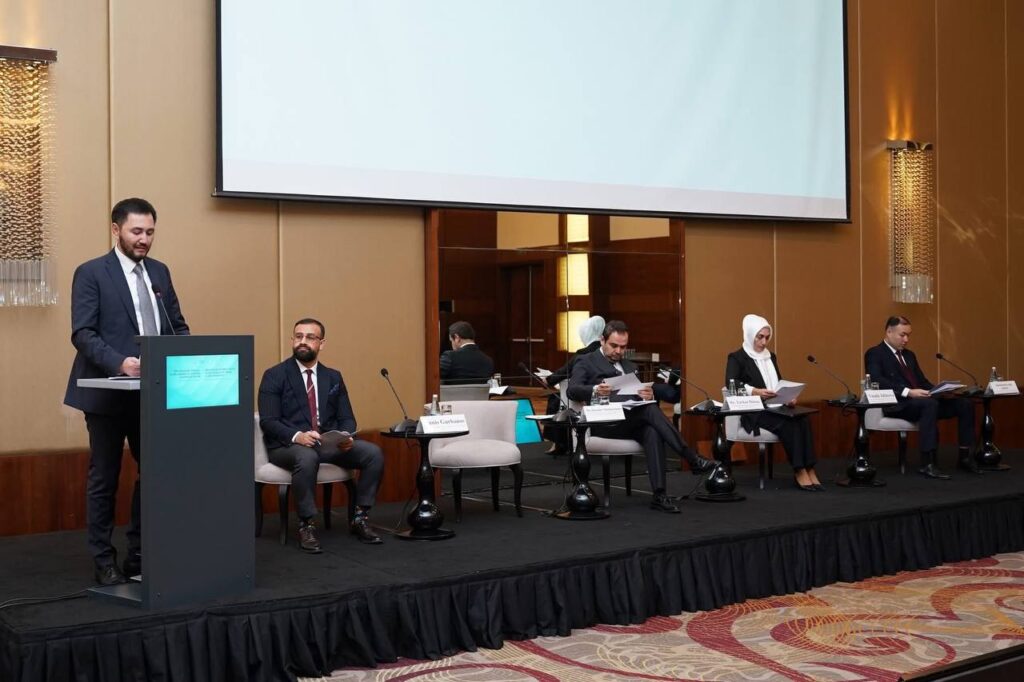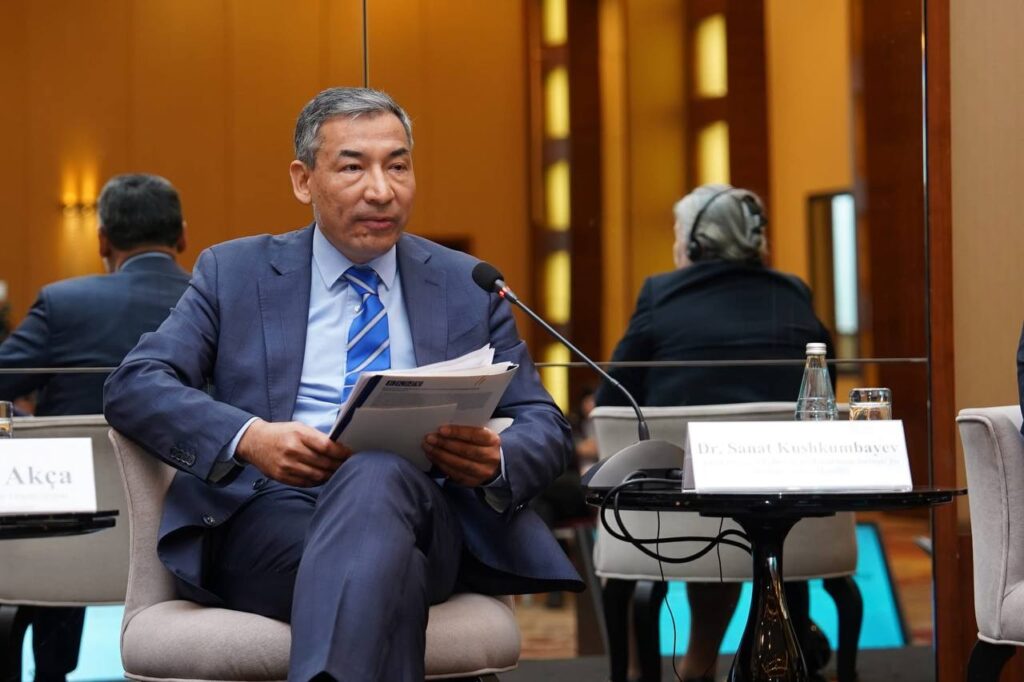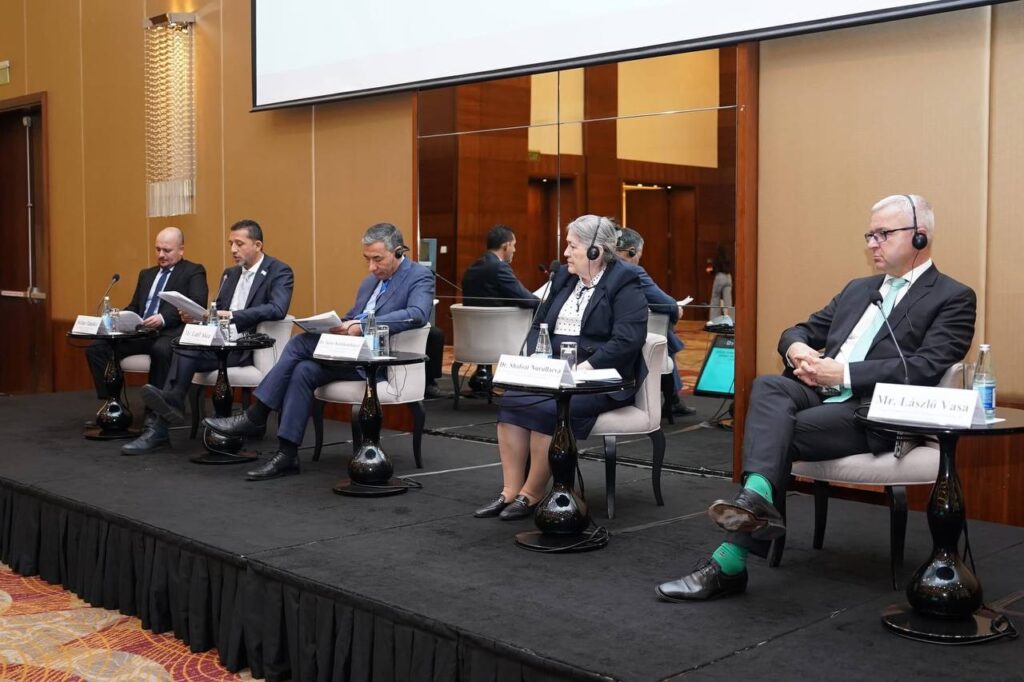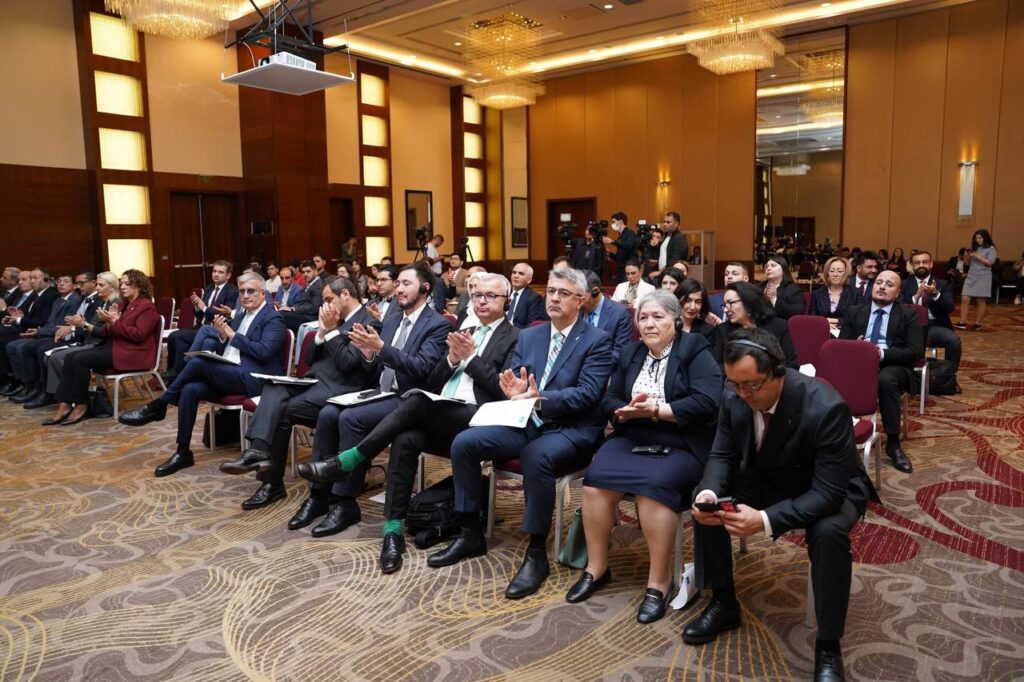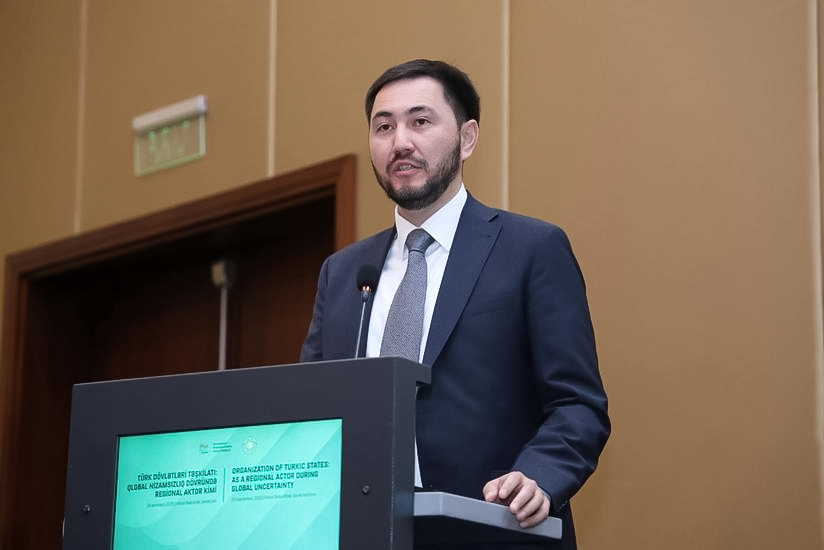Zhаndos Shaimardanov, Director of the Kazakhstan Institute for Strategic Studies under the President of the Republic of Kazakhstan (KazISS), spoke at the 11th Meeting of the Official Foreign Policy Research Centers of the Member and Observer States of the Organization of Turkic States (OTS) on the theme “The OTS as a Regional Actor in a Period of Global Turbulence,” held on September 29 in Baku.
In his address, he noted that the modern international system is experiencing a period of profound turbulence, driven by intensified geopolitical competition, the crisis of global institutions, and the rise of transnational threats — from cyberattacks and disinformation to climate and resource challenges. In such conditions, he emphasized, regional organizations are becoming key pillars of stability, offering practical models of cooperation and strengthening trust among states.
The KazISS Director outlined three key areas that, in his view, would allow the OTS to reinforce its role in ensuring regional security and development:
First – the development of connectivity and infrastructure.
He placed special emphasis on turning the region’s transport routes into “corridors of peace.” In particular, the signing of a peace declaration between Azerbaijan and Armenia opens new prospects for the Trans-Caspian International Transport Route.
Second – the integration of energy and digital flows.
This referred to projects such as the creation of a “green” energy cable and the construction of a Trans-Caspian fiber-optic channel between Aktau and Sumgait. These initiatives, he suggested, should be considered as a unified system – the “Caspian–Black Sea Energy and Digital Corridor.”
Third – the development of human capital and cultural integration.
He proposed the creation of a Skills Registry of Turkic countries, which would enable the automatic recognition of specialists’ qualifications across the region. This would ensure workforce mobility and strengthen mutual trust among states. He also highlighted the role of the creative economy as an important tool for shaping a common identity and preventing radicalization. “Peace is built not only through treaties, but also through people-to-people cooperation. Young people must see their future in a united, modern, and open Turkic space,” the KazISS Director emphasized.
The meeting in Baku brought together a wide range of participants, including representatives of leading research centers, government institutions, and international organizations. The intensive program covered key challenges and prospects for cooperation in political, economic, and cultural spheres.
Discussions focused on strengthening peace and stability, developing trade and transport logistics, and expanding humanitarian and scientific exchanges among Turkic states. Participants paid particular attention to logistics and infrastructure issues.
In addition, prospects for deepening cultural and educational exchanges, as well as elaborating common approaches to preserving historical heritage and shaping a shared future for OTS countries, were discussed.
The meeting also featured Sanat Kushkumbayev, Chief Research Fellow at KazISS.He stressed that Kazakhstan’s advantageous geographical location is a major strategic asset, allowing the country to play a key role in developing overland routes between East and West. According to him, Kazakhstan accounts for about 80% of all overland transit traffic along the China–Europe corridor.
He further noted that, in order to increase the efficiency of transportation within the OTS, large-scale infrastructure projects are being implemented, including the construction of a second railway line on the Dostyk–Mointy section, the development of the Bakhty–Ayagoz route, and the modernization of the Aktau and Kuryk ports on the Caspian Sea.
At the conclusion of the meeting, participants underscored the importance of strengthening coordination and joint efforts to effectively address contemporary challenges and achieve long-term stability in the region.
